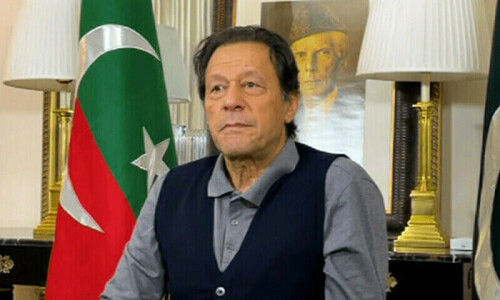Carnage at church after Sunday mass

PESHAWAR, Sept 22: The capital of Khyber Pakhtunkhwa was shaken once again by a heinous attack on churchgoers on Sunday morning.
As the besieged city and its inhabitants dealt with death, tragedy and mayhem, the rest of the country began to rally around to condemn the inhuman act that took 78 lives.
The day began quietly in the city and the churchgoers gathered at the historic church at Kohati Gate in a busy commercial-cum-residential area of the city.
Before the clock struck 12, the peace of the church and the city was cruelly interrupted as two suicide bombers blew themselves up on the church premises, killing 78 people and injuring another 120. Thirty-four women and seven children were among the dead. Seventeen injured are reported to be in critical condition.
According to foreign news agencies, a wing of the Pakistani Taliban claimed responsibility for the attack, saying it would continue to target non-Muslims until the United States stopped drone attacks in the tribal region.
This was the first suicide attack on the Christian community in Peshawar that has suffered countless assaults by suicide attackers and other militant offensives.
However, this is not the first such attack on the Pakistani Christian community. In fact, some of the first few suicide attacks in the country back in 2002 targeted churches in Islamabad and Taxila. However, as the militants grew more indiscriminate in their violence as the years progressed their targets included the general public and state installations. As a result, this attack on a church came as a surprise.
By the evening, the general sense of outrage was palpable in the air. And the loud condemnations from the ruling parties made it clear that the politicians realised the significance of what had happened.
By the evening PTI chief Imran Khan and Interior Minister Nisar Ali Khan had turned up in Peshawar and Prime Minister Nawaz Sharif had spoken about the issue in London. His statement appeared to be defining a new government policy on the Taliban.
Earlier in the day, the injured were rushed to Lady Reading Hospital, the Khyber Teaching Hospital (KTH) and Hayatabad Medical Complex (HMC).
City Circle Superintendent of Police Ismail Kharak told the media later that a suicide bomber had entered through the rear gate of the church where a police constable tried to stop him. However, the attacker blew himself up, killing the policeman also. A second constable was injured in the blast.
“It seems that the bomber had first used a hand grenade, he then entered the church and then blew himself up,” he said, adding that this was the police’s initial assessment and further investigations might lead to different conclusions. Bomb Disposal Unit chief AIG Shafqat Malik said that two suicide blasts had taken place and that each bomber carried six kilograms explosives.
He said the head of a bomber had been found and sent for forensic testing. Another investigation officer collecting evidence at the crime scene said three empty bullet shells had been found which suggested that the attackers had also opened fire with one or more pistols.
Philip, an eyewitness, told Dawn that on an average 600 to 1,000 people participated in the Sunday service but luckily the service ended at about 11.10am and most of the people left the venue.
Father Samson Anwar explained that although security was provided each Sunday by police, he had never imagined that an attack of this kind would ever take place.
Agencies add: The Tehreek-i-Taliban Pakistan claimed responsibility for the attack and said it had set up a new faction, called the Junood ul-Hifsa, to kill foreigners to avenge US drone strikes on Taliban and Al Qaeda operatives.
“We carried out the suicide bombings at Peshawar church and will continue to strike foreigners and non-Muslims until drone attacks stop,” Ahmad Marwat, a spokesman for the group, told AFP by telephone.
Reuters described Marwat as a member of the TTP’s Jundullah group and quoted him as saying: “(The Christians) are the enemies of Islam, therefore we target them. We will continue our attacks on non-Muslims on Pakistani land.”













































